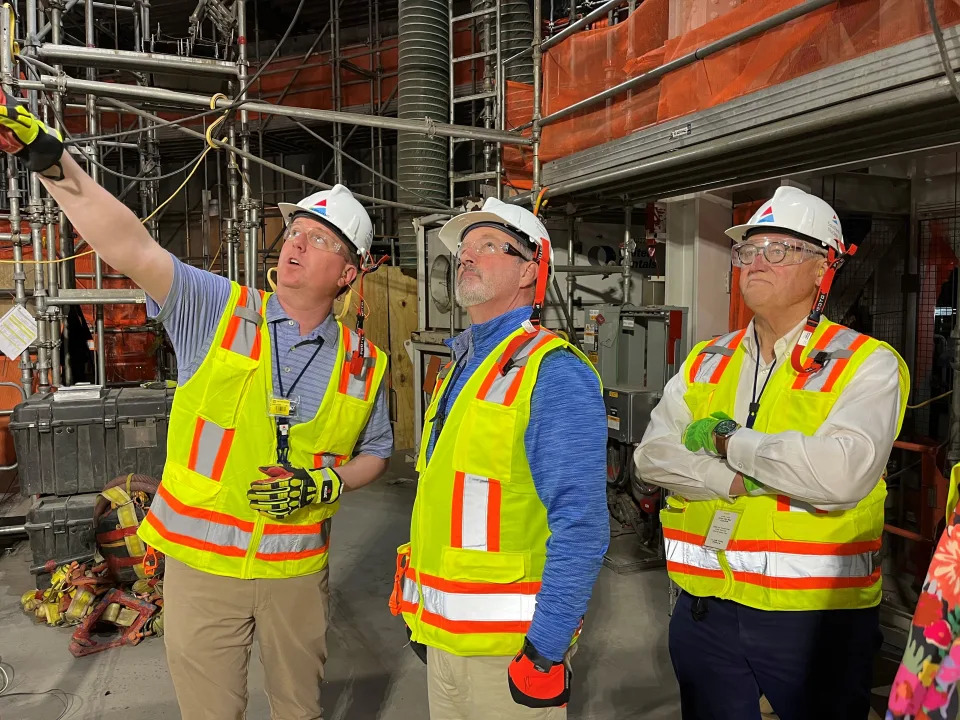After touring the as-yet uncompleted fourth reactor at Plant Vogtle, U.S. Rep. Rick Allen, R-Augusta and U.S. House Energy, Climate and Grid Security Subcommittee Chair Rep. Jeff Duncan, R-South Carolina, had a message — the United States needs more Vogtles.
“I’ll go back to Washington with Rick and we’ll share with our colleagues on Energy and Commerce, what’s happening here at Plant Vogtle, and how that really needs to be replicated across the nation,” Duncan said at a press conference after the tour, referencing the committee they both serve on.
Future projects might look like Plant Vogtle, or might use small or modular reactors, but as the first reactors to be built in the U.S. in 30 years, Duncan said Vogtle is already instructive. Duncan said he recently returned from Poland, where a number of new nuclear facilities are being built, and that those projects are learning from Plant Vogtle.The expansion, adding a third and fourth reactor to the existing nuclear plant, was authorized in 2009 and the project has been plagued with delays and cost overruns. The initial plan was to bring Unit 3 online in 2016 and Unit 4 the year after. Unit 3 just came online earlier this month and Duncan said Unit 4 should be online in December. It has cost more than double the projected $14 billion.

Allen said that the project had a learning curve after 30 years without new nuclear facilities being built and with a new reactor design as well, along with the bankruptcy of the lead contractor Westinghouse Electric.”We now know how to do this,” Allen said. “We have this workforce. Let’s go do it again. Because we’re gonna need this power.”The congressmen got to step into the fourth reactor on their tour, which Allen said was likely the last time someone not working on the reactor will be inside. Both representatives stressed the safety measures and redundancies present in the system.
“We’ll start crafting some legislation. We’ll have legislative hearings because the nuclear package coming out of the House is the next step in the energy realm,” Duncan said.
One of the things Duncan hopes to see is a more streamlined checklist of requirements from the Nuclear Regulatory Commission for new projects.
Neither Allen or Duncan are opposed to using other sources of power as well, including solar and wind with battery backup. In their last three year plan, Georgia Power, which is the main investor in the Vogtle project, also proposed adding 1,000 megawatts of energy storage by 2030. But Duncan is skeptical that the technology is able to meet 24-hour production, something nuclear can do. Both congressmen want to see America leading on nuclear.
“It was really good to see the steam coming out of three of those huge cooling towers,” Allen said. “That’s three out of four. … And it’ll be good to see that steam coming out of that fourth one.”


